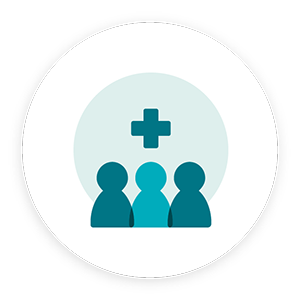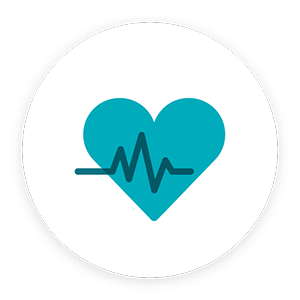The UK Government recently released its new and ambitious NHS 10 year health plan for England, ‘Fit for the Future’. The comprehensive strategy outlines the government’s long term vision to improve the NHS. Furthermore, it is designed to tackle inequalities in access and outcomes, and allow everyone to engage with the NHS on their own terms.
There is a clear goal for our healthcare system to become more preventative, community focused and digitally empowered. Therefore, the government hopes to improve outcomes across the country, with an extra £29 billion investment to fund these reforms.
To achieve this vision, the 10 year health plan is split into 3 main radical shifts for the NHS:
- From hospital to community
- From analogue to digital
- From sickness to prevention
Alongside these foundational transformations, the NHS will:
- Run a new operating model, aiming to solve the productivity crisis
- Focus on workforce development and retention
- Make ICBs strategic commissioners of local healthcare services
- Continue to make use of private sector capacity (particularly to expand provision in the most disadvantaged areas).
From hospital to community
The NHS 10 year health plan will aim to transform how we access healthcare, through the introduction of a neighbourhood health service, designed to reflect the specific needs of local populations.
This will represent a significant shift, bringing services directly into our communities to deliver continuous, accessible and integrated care. Care will be moved closer to people’s homes, reducing reliance on hospital use and admissions. Essentially, these centres will create a ‘one stop shop’ for patient care.
As a result, through the introduction of neighbourhood health teams, we can expect to see:
- Power put into the hands of the patients – ‘bringing the NHS to you’.
- An end to the 8am scramble for GP appointments.
- The ‘one size fits all’ methods of care will be abolished, and patients’ individual needs will be met.
- Individual care plans will be co-created with patients and will cover holistic needs, not just treatment.
- More integrated working not only within the NHS, but also between the NHS, local government and the voluntary sector will lead to increased efficiencies.
As a result, this new initiative will see a higher share of NHS expenditure come into community settings, with less being required in hospitals over the next 10 years. Ultimately, patient outcomes will be improved through more care being delivered more effectively and more conveniently for them.

From analogue to digital
Technology is at the heart of the NHS 10 year health plan. The government is striving for a fully digitally enabled NHS, improving patient access, providing greater data insights, and enabling seamless data sharing across different healthcare settings and providers.
For example, through the introduction of a single patient record:
- All medical records will be in one place
- Information will be visible across all care settings
- No more repeated stories
- Complete visibility of previous appointments
The NHS App will be transformed into a full front door for the NHS by 2028.
Consequently, patients will be able to:
- Manage their own medications,
- View their data,
- Book and attend appointments,
- Communicate with various health teams
- Be involved in drafting care plans.
They will be empowered by having more choice of services and providers, options to self refer where clinically appropriate, and direct access to fast advice. Also, feedback will be built in, which will be translated through AI into actions for managers and clinicians to improve service delivery and patient experience.
Ambient AI technology will also be trialled to help clinicians by capturing notes and even uploading them to the patient record.

From sickness to prevention
Additionally, the plan introduces a critical move from sickness to prevention. Everyone will be given the ‘power to make the healthy choices’. The life expectancy gap between the rich and poor is growing, and childhood obesity is continuing to rise.
This shift will focus heavily on preventative measures to ensure we can reach patients earlier, catch illnesses sooner, and aim to prevent them in the first place. Partners across private and voluntary sectors will drive the innovations and technologies that can help people to be healthier.
Specifically, in order to focus on illness prevention, and generally improve the health of the population, the NHS 10 year plan will introduce certain initiatives, including:
- Encouraging healthier choices around alcohol consumption
- Creating a smoke free generation – children turning 16 this year will never legally be sold tobacco.
- Expanding access to weight loss services and treatment, building on the success of the NHS digital weight management programme.
- Expanding provision of individual placement and support schemes.
- Encouraging people to exercise more frequently.
These initiatives, which focus on addressing health inequalities, promoting healthier lifestyles, and expanding early interventions, will help keep our population healthier for longer, and reduce the burden of long term conditions.

What does the NHS 10 year plan mean for mental health?
Moreover, within the NHS 10 year health plan, there is also a significant focus on mental health.
Increasing prevalence is recognised, along with the clear links between mental and physical wellbeing.
For example, some key initiatives included in the plan feature:
- Increased access to early support for CYP. Mental health support teams (MHSTs) in schools and colleges will be expanded further, with 1 million more young people set to benefit this year, with full national coverage expected by 2029/30. Additional CYP support will be provided through the introduction of Young Futures Hubs.
- Expanded mental health support within communities. Mental health services will be transformed into 24/7 neighbourhood care models. This will provide open access to specialist services and holistic support. Neighbourhood mental health models will be piloted and potentially expanded.
- Introduction of 85 dedicated mental health emergency departments. £120m funding to increase capacity for urgent mental health care, ensuring fast and same day access to specialist support within appropriate settings.
- Improved access to digital technologies for mental health support. This includes self-referral for talking therapies via the NHS App and the use of AI to support individuals with depression and anxiety.
Mayden’s contribution to the NHS 10 year plan
The 10 year health plan presents a strong opportunity to transform the NHS. With Mayden’s suite of innovative technology, and our proven track record in supporting community and mental health services for 25 years, we are well placed to support its successful delivery.
We design digital technology for improved outcomes that is proven to:
- Release cash back into the service
- Streamline operations
- Free up clinical and administrative time
- Increases productivity
- Improve staff wellbeing and retention
- Contribute to the goal of a fully digitally enabled NHS
The plan calls for data-driven decision-making and seamless data sharing. Systems like iaptus are designed to capture comprehensive patient data. Through its interoperability features and integrations with other clinical systems, such as shared care records, iaptus ensures clinicians have a full picture of a patient’s journey, avoiding the need for patients to repeatedly recount their story. This is essential for coordinated and personalised care.
We are committed to partnering with the NHS to help turn these ambitious plans into a reality, ultimately delivering better, more accessible, and more integrated care for all.
Let’s transform health and care, together.


